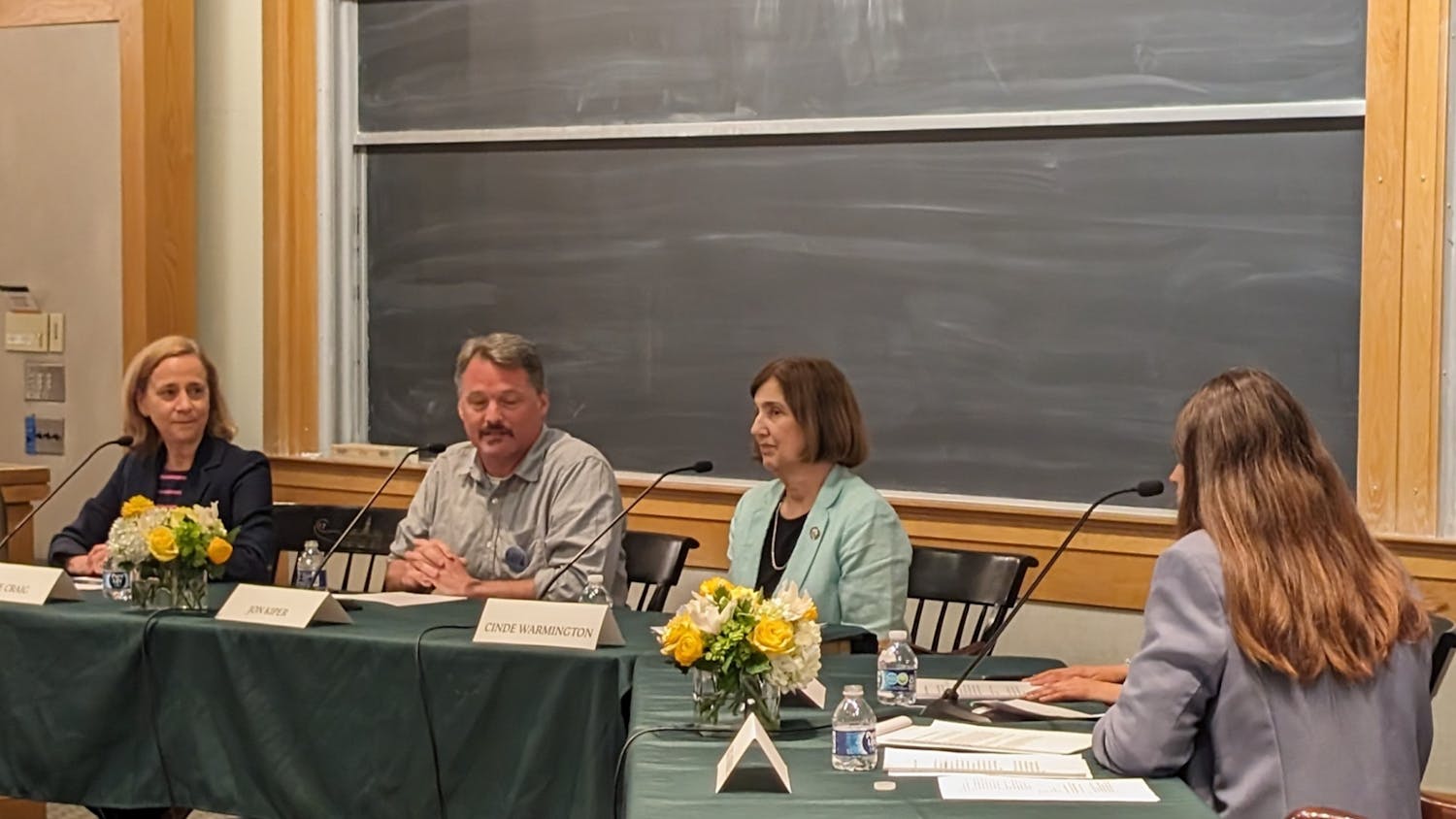In the wake of Anthony Weiner's second public sexting slip-up in as many years, some have questioned his wife Huma Abedin's decision to stand by her husband not once, but twice. However, while those who couch their arguments for Abedin to leave Weiner may believe themselves to be well-intentioned advocates for a woman's right to an equal, loving and committed relationship, there are several points at which the supposedly progressive logic of their argument breaks down. Ultimately, the primary arguments and hypothetical explanations for Abedin's personal choice are a hodgepodge of racist, sexist and prescriptive illogicisms.
First, the belief that others or society at large should dictate what is or isn't appropriate in an individual woman's personal life has a long history as a tool of oppression against women. Not long ago, marriages matches were made by the respective parties' fathers; the woman's opinion was null. In this context, women were reduced to the role of currency. Upon the advent of birth control, those who opposed Margaret Sanger's campaign to mainstream its usage argued that women had no legal right "to copulate with a feeling of security that there will be no resulting conception." In the mid-20th century, the idea that women should be agents of their own reproductive destinies was abhorrent to mainstream society. Today, debates over birth control, early termination policies and a woman's right to choose her own partner remain salient; however, the timbre of these debates no longer focuses exclusively on the morality of these individual decisions. Those who purport to give Abedin advice employ the same logic as those who said that birth control was immoral because it expanded women's freedom, or who argued against women's right to choose their own husbands because it challenged marriage as a social structure that reinforced economic strata. Just as women have the right to make their own decisions about birth control and marriage, so does Abedin have the right to make her own decision as to whether to stay with her husband.
Secondly, some commentators have ascribed what is at its heart a personal decision to Abedin's political and religious life in a set of observations that are neither factually accurate nor politically correct. On Thursday, conservative radio host Rush Limbaugh latched on to the fact that Abedin is a Muslim woman to explain why she hasn't left Weiner. In a revelation of his own ignorance more than anything else, Limbaugh asked, "Muslim women don't have any power, right?" Ultimately, Limbaugh suggested that Abedin's decision to stay with Weiner was born out of misguided convictions borne of being a woman in a religion that he saw as discouraging to women's rights to make their own decisions, rather than due to her personal convictions. For Limbaugh and other commenters to paint Abedin thusly is not only culturally ignorant but offensive to Abedin's personal agency. The idea that being a Muslim robs Abedin of her decision-making power is not only odd, but also illogical given Abedin's high level of education and personal accomplishments as a member of Hillary Clinton's staff since the age of 19.
Thirdly, the simple idea that commentators and the public at large have the right to tell Abedin what she should or shouldn't do in light of her husband's continued indiscretions is inappropriate. While most people who hear about this situation naturally have a gut reaction to the situation, it is inappropriate and infantilizing for those of us on the outside to presume to know what is best for Abedin. Doubtless, her decision matrix is difficult: the couple has a young son, both sides presumably hope to continue pursuing their political careers in some form or another after the scandal dies down, and Abedin herself must have thoughts on her decision to stay with Weiner after the original revelation two years ago.
Ultimately, this situation leads to a two-fold conclusion: first, that Abedin should be left alone to make whatever decision she finds best for herself, and second, that those on the outside should take care to mind their words on the topic. The public's lack of complete information and the sanctity of the private sphere both indicate that those outside Abedin's marriage that is to say, everyone but her and her husband have little to no basis for judgment or advice-giving.



